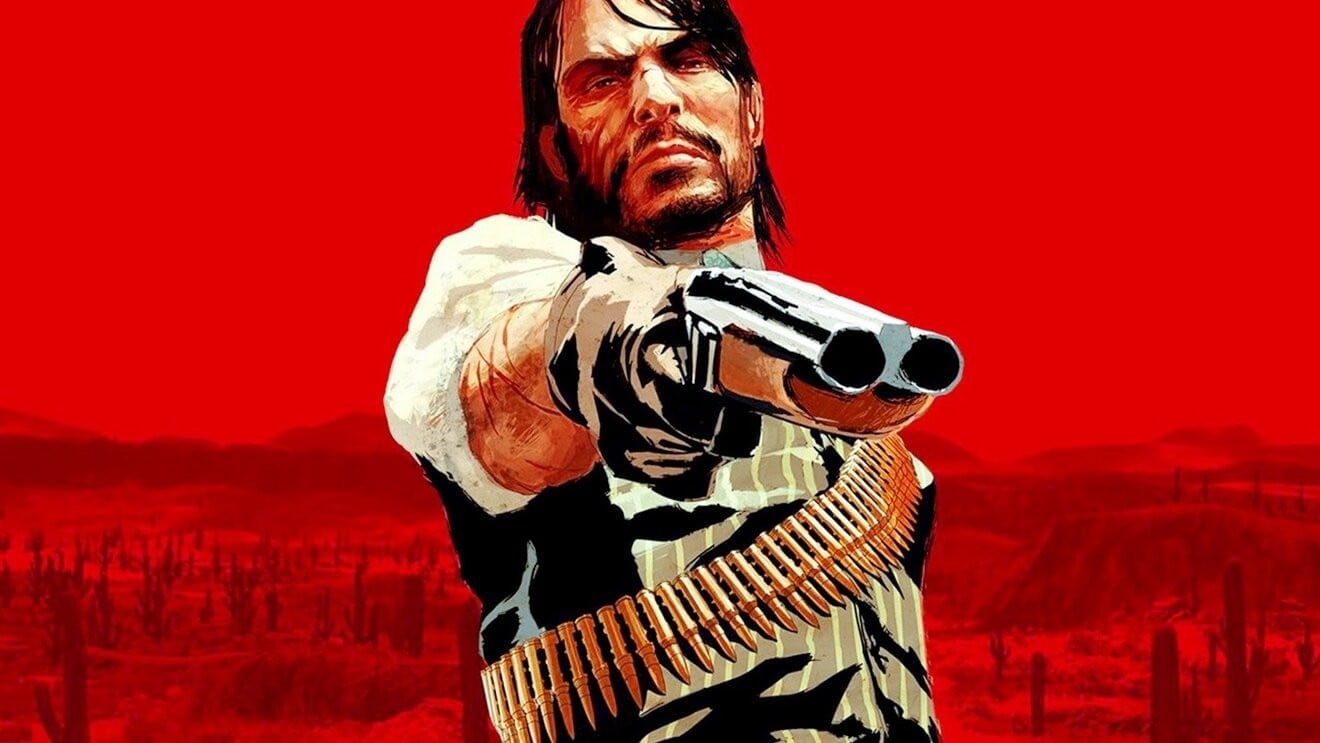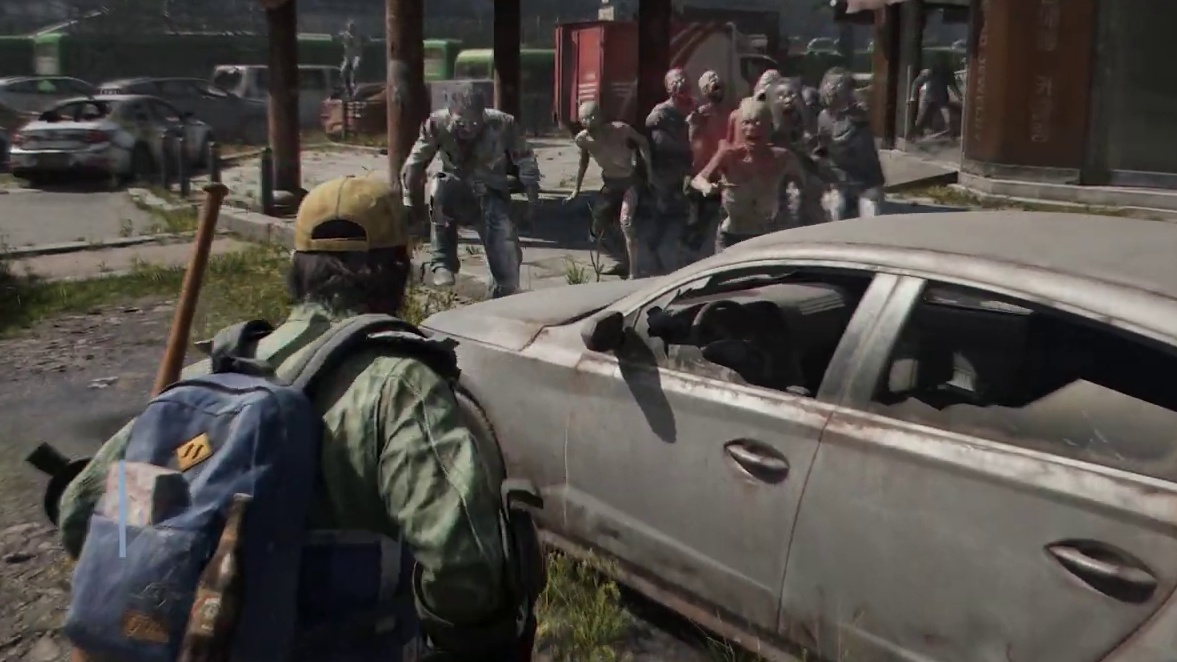The games in the Metro series have always been known for tapping the maximum graphic out of their current hardware – a discipline in which Nintendo's Switch is more infamous than famous. We were all the more excited about the implementation of Metro 2033 and Metro: Last Light in the Redux version for the technically rather weak-breasted console.
As a PC player, Metro 2033 and even more of its successor, Last Light, are remembered as the ultimate in graphics. In view of this, the question inevitably arises: Is such splendor on the Switch possible in this form or only under drastic compromises? But as so often, the memory in the distorted mirror of memory must first be put back in the right light, from which it has moved away in the dim gloomy darkness of the transfiguration over the years.
<a href = "https://img.gameswelt.de/public/images/202001/238c8467e1d567e3beafe60337b79fcc.png" data-title = "Metro: Redux Bild 1
Date: Jan 16, 2020 "data-lightbox =" 238c8467e1d567e3beafe60337b79fcc.png ">
Metro 2033 is already ten years old and therefore a very deep past gene past. You should even think that the Switch should be able to handle it. Especially since the graphic splendor that one visualizes in the mind's eye probably does not correspond to reality any more than the supposed photo-realism of the first CD-ROM games. And in fact, small things like not always ultra-high-resolution textures, some rough edges and especially the stale (face) animations undoubtedly show that this game actually comes from a different era. But that's it. Everything else is just sensational …
Graphics: Is this still a switch or is it already a current gen?
It says a lot about the quality of this switch port that I first had to answer each of my colleagues who looked over my shoulder while gaming at the question "Is this the Metro?": "Yes. But on Switch, mind you. ”This was usually followed by a surprised, then immediately appreciative, eyebrow raising. The family console is not used to such a look, dirty, dark, detailed, devoid of any cuteness. And not this graphics quality either. Gosh, that looks bold in the improved Redux version! Almost exactly as you imagine it – and that is one of the greatest compliments that you can give to such an old game and even more so the switch.
Where, for example, recently the switch remaster of Assassin's Creed IV: Black Flag made its nature as a time traveler from another hardware era unmistakably recognizable at every moment and showed the gap that exists between the then and today's technology Metro with limitations like the port of a reasonably current PS4 game. Unbelievable how little this game has aged – in contrast to God of War 3 and Dragon Age: Origins, which appeared on the exact same day (!) As Metro 2033.
Although it may not initially seem so in view of this graphic splendor, Metro is perfect for an implementation on the switch. Because the limited visibility in the subway tunnels and the strict linearity of the gameplay require less of the hardware than the wide areas of modern shooters and thus give it the freedom for outrageously many subtleties and effects, which succeed in an impressive way, the actual age to cover up the graphic without having to mess it up with makeshift blur filters as in Wolfenstein 2.
<a href = "https://img.gameswelt.de/public/images/202001/38bfd64a80d2ef82a5ad9e4e5d06b2aa.png" data-title = "Metro: Redux Image 1
Date: Jan 16, 2020 "data-lightbox =" 38bfd64a80d2ef82a5ad9e4e5d06b2aa.png ">
The massive use of graphic effects, in particular, makes the shown shine in a boastful opulence that is completely untypical for the Switch. The scenes in the bunkers of the metro stations, for example, in which the last survivors vegetate more than they eke out their existence, appear in their almost pretentious exaggeration, stuffed with glowing lamps, flashing lights, sparking sparks, the light rays of which break in colorful reflections, their shadows Make it dance on the walls and let the waving smoke from cigarettes and campfires shine, that it gives the impression that the developers played with the power of their engine like a bodybuilder with his muscles.
Then when the light from the headlights ghostly fills the rising fog in the dark subway tunnels, floating ash particles glitter in the air like fireflies and the water droplets mix with the blood splashes on the lens of the gas mask, this amazes incomparably cleverly distracted by small restrictions such as the blurring that begins at a depth of a few meters. Even the Switch's lack of anti-aliasing is covered by the developers in a fabulously clever way with minimally coarser pixels, which sometimes make the image slightly spongy, but make it seem seamless from a single source.
I have never seen so many effects, so many details, such a staging on the Switch – and also did not consider it possible. PS4 and Xbox One owners will certainly turn their noses up in amusement, but at least they won't be able to avoid an approving nod either. Metro is undoubtedly a child of the last generation of consoles, but it is precisely as such that it impressively demonstrates technical progress when you consider that here and today a game that a few years ago was the measure of all things on sinfully expensive hardware, on one flat tablet runs, whose computing power does not even have to be cooled by a fan.
Gameplay: the better Call of Duty?
But from today's perspective, Metro is also an interesting journey into the shooter genre in a playful way, when Call of Duty: Modern Warfare was the hottest shit and its game genre into a new era of game history thanks to its simple design, which is mainly interested in staging spectacles led and at the same time thrown back by years in terms of content.
<a href = "https://img.gameswelt.de/public/images/202001/3f6a9da5e4a6d1199af750db70850c21.png" data-title = "Metro: Redux Bild 1
Date: Jan 16, 2020 "data-lightbox =" 3f6a9da5e4a6d1199af750db70850c21.png ">
Metro emulated this blueprint without copying it. Her prominent features: Firstly, a strictly linear level design, for which the term "hose" became common, because the only possible path in the game world beats in an unwavering way, as it only makes sense within the logic of video games. Secondly, scripted scenes in which the game regularly takes control away from the player, making him a compulsive admirer of the orgiastic staging. A typical cliché for this type of staging in those days: scenes in which the hero is pulled out of the trouble by another person with his arm outstretched. In its very first hour, Metro cited this stylistic device five times.
The influences of Call of Duty can already be clearly seen in the memorable opening scene of Metro 2033. Right at the beginning, we are thrown into the middle of an apocalyptic spectacle that was unparalleled at the time. On the surface of Moscow devastated and irradiated after a nuclear war, hero Artyom is ambushed by a pack of mutant monster dogs, while giant kite-like bats attack from the air, grab a whole wrecked car and hurl it at us, while we no longer know how to do it happens. Metro turns all the stops to the stop from the first second.
But developer 4A Games was never satisfied with a mere plagiarism. Metro should always be the secret “better call of duty”, or at least a call of duty that is different. Simply because of the unique setting. And the strong focus on history. His atmosphere between bleak apocalypse, psychological survival drama and subtle monster horror. And also playfully through the more demanding gameplay in a constant change of ballers and sneaks.
A game as it is in the book
Metro is based on the books by Dmitri Gluchowski, in which the ruins of the Russian capital primarily serve less as a setting for battles between people and mutants, but rather were the stage for a sociological thought experiment, a microcosm of different social forms, under the burning glass of the apocalyptic scenario were pitted against each other: democrats, militarists, fascists, traders, religious fanatics.
<a href = "https://img.gameswelt.de/public/images/202001/a5865fd45d42b24e658c3955ef16eb24.png" data-title = "Metro: Redux Bild 1
Date: Jan 16, 2020 "data-lightbox =" a5865fd45d42b24e658c3955ef16eb24.png ">
Groups of different ideologies enter into an ideological competition for survival in the kaleidoscope of the Moscow subway. Survival of the Fittest as an end-time Game of Thrones, so to speak. Although there is only a distant echo from the multi-layered discussion in the games during the reloading breaks, the subtle philosophical substructure gives this genre, which is not exactly known for its subtlety, a captivating depth of content.
If you play Metro 2033 and Metro: Last Light in a double pack of the Redux Edition in a row, they look like back to back like little and big brother: a typical debut and its more mature sequel. Where in 2033 the interplay between action and sneaking was still a bit bumpy, in Last Light it looks fundamentally more sophisticated and forms a central aspect of the gameplay instead of flanking it indecisively at certain moments. The oddity of the gameplay, that ammunition also functions as currency, stems directly from the novel template and clearly demonstrates that not everything that fulfills a narrative purpose has to make sense in a playful way. It was sharply defused in the successor and can be completely adapted to your own preferences in the options of the Redux version.
The trailer provides first insights into the new switch implementation of the shooter bundle Metro: Redux.
Narratively and in terms of sequence, the two games are very similar, which is mainly due to the fact that the story of Last Light is not based on a template, but was written directly for the game, because the developers found that the continuation of the novel Metro 2034 was not for one Action game suitable. As a result, it sometimes looks like a drilled-out variation of the predecessor, but can afford more freedom to link the action more closely to the gameplay.
On Switch, it is particularly impressive that the successor on the Nintendo console also clearly outperforms the graphically impressive first part in every respect. Only the black contrast was so dark in some sneaking passages (especially on the handheld) that only manual adjustment of the brightness on the screen prevented it from being played. However, the developers promise that the patch will help soon.











